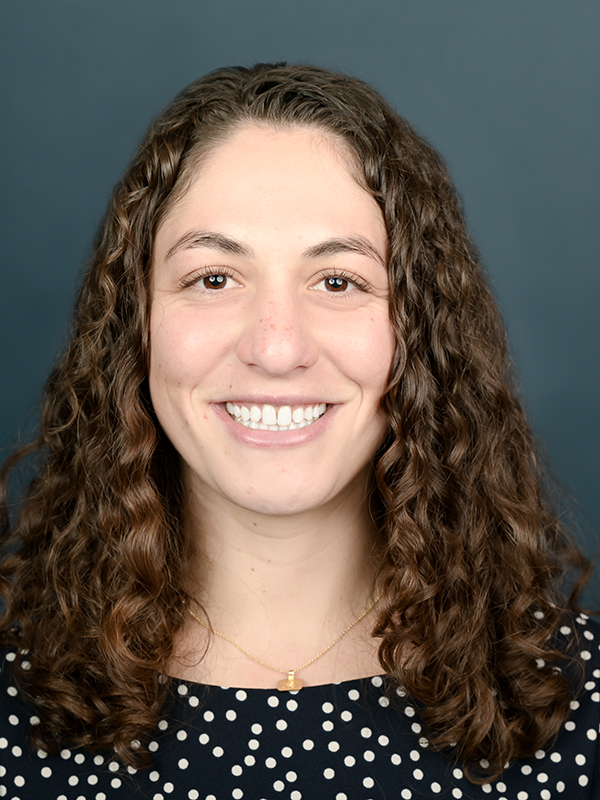
Hannah Orbach-Mandel’s career in social policy was sparked by a desire to understand the policies in place that impact female student athletes. She first became interested in Title IX and sexual violence and harassment policy in college sports as a former student athlete at Kenyon College; after graduating and landing a job in sports finance at the NCAA office in Indianapolis, she found herself continuing to ask questions and seek answers: “Because I was working at the headquarters of college sports, I had opportunities to meet with people and talk to advocates that worked in the policy space. It was clear to me that I had found what I was truly passionate and excited about.”
From Indianapolis to Waltham
Eager to pursue a formal education and understanding of policy, Hannah started looking at graduate schools and programs with a focus on gender and was immediately drawn to the Heller MPP program’s Women, Gender and Sexuality concentration.
Although her first year at Heller was online due to the pandemic, Hannah relocated to Waltham in the fall of 2020 and moved in with a member of her cohort. She recalls that despite the challenges of learning remotely, her peers all made an effort to keep the community spirit alive through virtual meetings and Zoom happy hours. “I think people pick Heller and social policy programs for a reason,” she says. “I really appreciated being among people who were from so many different backgrounds yet still shared fundamental core values centered on equity.”
Thanks to the small class size, the cohort was able to develop strong relationships with not just each other but with the professors as well. “I really value the professors that I was able to learn from and work with,” Hannah says. “They were a major factor in my decision to come to Heller, and I learned so much from them.”
Putting Gender Equity Into Practice
As a student, Hannah heard about a fellowship opportunity with the Center on Budget and Policy Priorities at a Heller alumni panel. She later applied to the program and was accepted at the California center, which has a robust portfolio on gender equity work: The Women's Well-Being Index is a massive data tool with 30 measures of women's well-being across the state. The index ranks every county for every indicator, and further breaks down the data by gender, race and ethnicity. “I was really excited when I saw that tool,” Hannah recalls. “I got to co-author the third version of it last year, which was just a very full circle moment. It’s been a central aspect of my job and has helped ensure that I keep doing the gender equity work that I care about.”
After completing her fellowship, Hannah finds that her Heller skills have translated directly into her current full-time position as a policy analyst. “I’m responsible for doing research and data analysis, then writing up my findings. I feel like Heller really helped prepare me to write for different types of policy audiences in a way that's understandable and accessible. There was also a lot of emphasis on equity and anti-racism and making sure to bring an equity lens into all of our research and work—something that has been invaluable.” The lessons learned as part of the WGS concentration have been paramount to her work centered on gender equity: “I try to bring that gender lens to all of my research and analyses, and examine the data and issues by how they impact women—that includes disaggregating data by gender and sexual orientation, and examining why gender disparities persist in areas like health and poverty.”
Advice for Current Students
Hannah’s advice for current students is to explore areas outside of your concentration: “I think it's very important to specialize and have an area that you're an expert in, but it's also helpful to have a breadth of knowledge covering a wide array of subjects. Don’t be afraid to get a better background on a wider variety of policy issue areas—you never know what you'll end up doing after Heller or where that knowledge might come in handy.”
Advice for Prospective Students
Similarly, Hannah encourages prospective students to come to campus with an open mind: “When you’re exploring programs, see what other courses or specialties are offered, because you never know how your path and interests might change. The WGS concentration is what brought me to Heller, but I’ve found in my current role that I’m also now working on policy areas that Heller also excelled in, like health and immigration policy. I’ve found in my job that everything intersects and crosses over, so it's super helpful to know more about other issue areas too.”
